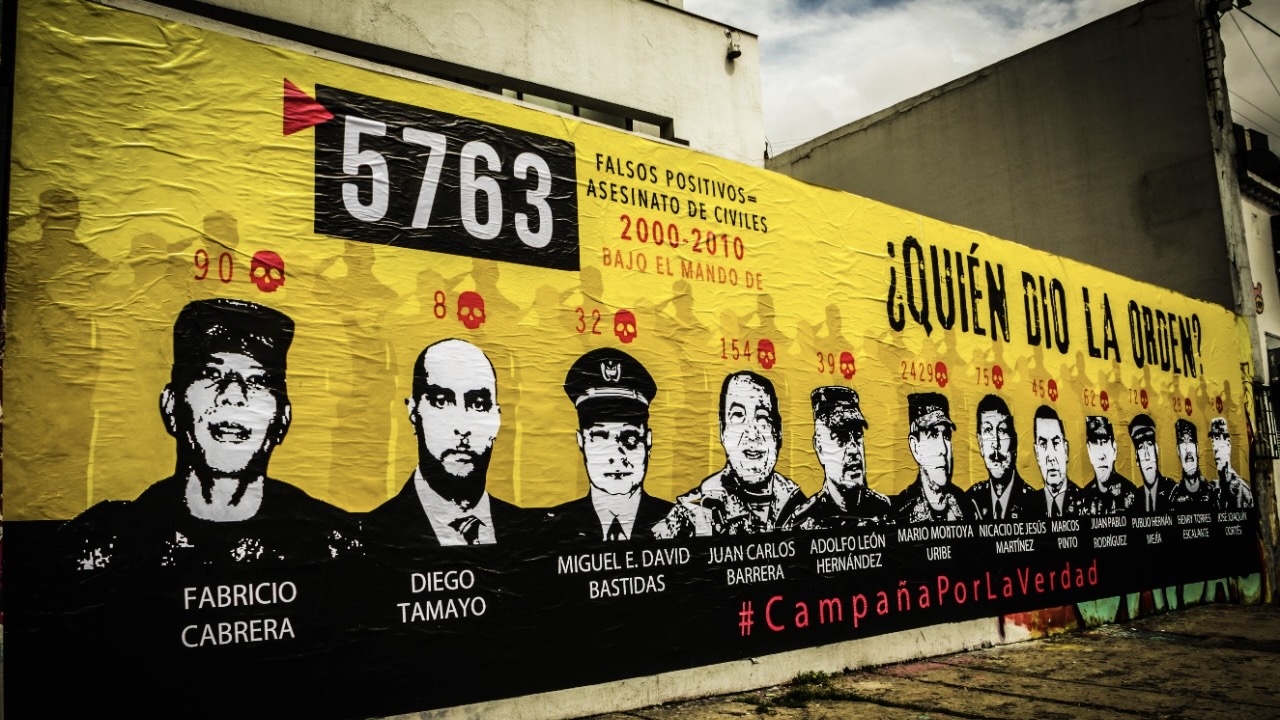On Monday, July 25, Colombia’s Special Jurisdiction for Peace (JEP) charged 22 former members of the army, one state official, and two civilians with war crimes and crimes against humanity. The JEP determined that the members of the 16th Brigade killed 303 innocent people in 218 incidents between 2005 and 2008 in the Casanare department, and then framed them to government authorities as left-wing guerrilla fighters killed in combat to obtain rewards.
The JEP condemned that within the military unit, a criminal structure was created that naturalized this violent practice to access promotions, cash prizes, vacations, and other perks. It also stated that under the command of convicted retired Major General Henry Torres, these criminal operations increased.
“A complex criminal organization was implanted in the XVI Brigade that used the institutional architecture of the Army to present murders and forced disappearances as combat casualties…The Chamber of Recognition of Truth of the JEP established that under the command of Major General Henry William Torres Escalante, the artificial presentation of operational results in this eastern region of the country increased,” the JEP said in a statement.
The special tribunal stated that the defendants used deception to attract the victims, and that after killing them, they equipped their dead bodies with weapons, ammunition and clothing to pass them off as combatants, and recreated fictitious combat scenarios to make their version of events credible.
The JEP added that “all those responsible followed the line of conduct promoted by their commander. These were not isolated acts or acts committed spontaneously,” and that “it was a criminal plan that had its objectives, resources, roles, and modes of operation. It was aimed at consolidating territories and showing progress in the war against the guerrillas.”
It reported that the soldiers used more than 140 million pesos (approximately USD 31,000), from public resources to finance these criminal actions. It also reported that these crimes represented almost two thirds of the results reported by the military unit during the said period.
▶️JEP imputó crímenes de guerra y de lesa humanidad a 22 miembros del Ejército, un funcionario del extinto DAS y a dos civiles por 303 'falsos positivos' en Casanare.
▶️Por primera vez la JEP imputa crimen de lesa humanidad de persecución por razones de género.
Conozca más👇
— Jurisdicción Especial para la Paz (@JEP_Colombia) July 26, 2022
According to the JEP, the majority of the victims were men between the ages of 18 and 25, many of whom were relocated from Boyacá, Meta and Arauca departments. However, the JEP’s investigation revealed that the military also murdered nine women, one of whom was pregnant, and a young man with diverse sexual orientation.
The JEP was able to establish that the military used children and adolescents to participate in the hostilities, and that the gender-diverse person was persecuted for his sexuality. For these reasons, for the first time the JEP charged the defendants with war crimes and crimes against humanity.
Besides major general Torres, two colonels, three lieutenant colonels, ten officers, six non-commissioned officers, an agent from the defunct Administrative Department of Security (DAS), and two civilian recruiters who tricked young men and women and handed them over to the army to be assassinated, were pronounced guilty.
Those convicted have 30 working days to acknowledge the facts and their responsibility. They can also reject them or provide arguments or evidence in their defense. After that period of time, the JEP will decide when to schedule a public hearing and announce a sentence. According to the Colombian penal code, they could be sentenced to 20 years in prison.
These extrajudicial executions are known as “false positives” in Colombia. During the rule of former far-right President Álvaro Uribe (2002-2010), military officials were rewarded for these killings during counterinsurgency operations. In February 2021, the JEP reported that the Colombian military carried out more than 6,400 of these extrajudicial killings. Human rights groups and the families of victims have said the real number could be much higher.
In April, ten retired members of the military confessed to kidnapping and murdering over one hundred civilians, the framing them as guerrilla fighters. The JEP is expected to issue a resolution in their case in the coming days. The special tribunal has the authority to offer alternatives to prison sentences to people who confess their crimes and make reparations.





